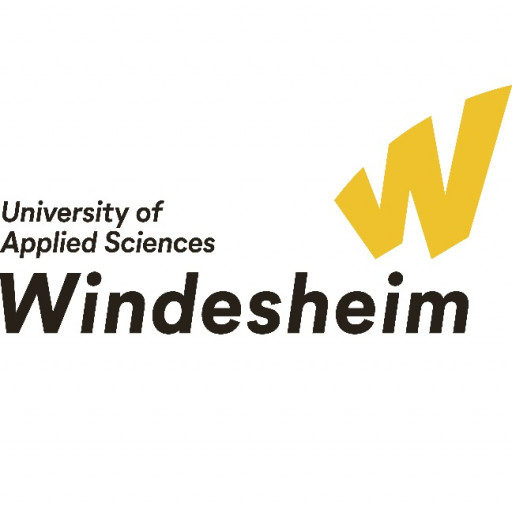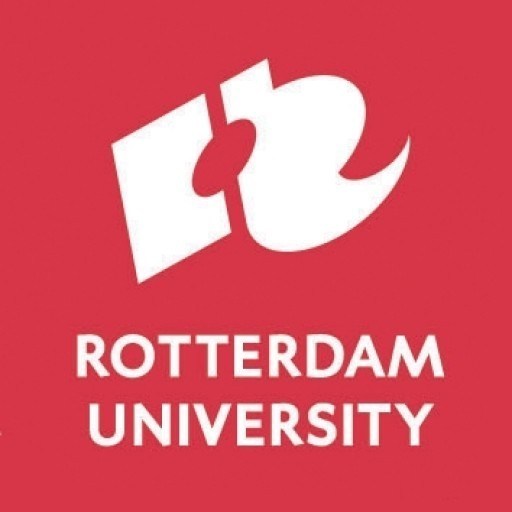Photos of university / #radboud_uni
Chemistry is all around. It forms the basis of everything you use, whether it’s the display of your mobile phone, your deodorant, a painkiller to relieve a nagging headache, or the paint that you have chosen to brighten up your room.
In this Bachelor’s programme you’ll learn how to design molecules in such a way that they posses the right properties. An aromatic substance must be volatile and smell nice. Car paint must be scratch resistant and have the right colour. That’s what makes chemistry research versatile and exciting.
Societal issues play an increasingly important role in chemical research. Can we develop a car paint that makes scratches disappear and is biodegradable at the same time? Can we develop a gel that heals wounds but is also affordable? Can we develop a chemical process that is CO2 neutral? During the Bachelor’s programme in Chemistry you’ll be challenged to solve these societal issues by conducting chemistry research together with scientists from various disciplines.
Radboud University challenges its students to actively participate in the academic community and trains them to be critical and committed academics, who develop their own views regarding society and who will take up responsible positions in a society that is becoming increasingly international.
Each academic year starts in September and is divided into quarters of ten weeks each. You will attend lectures and do lab courses during the first eight weeks, followed by an examination period of two weeks. You will have a full-time working week of forty hours, consisting of various forms of education. The majority of the courses include lectures and tutorials, which will take up forty percent of your time. Tutorials are typically held in groups of approximately twenty students. In addition, you will spend one third of the time on lab courses. Some of these are done individually, others, in pairs or with a project group. These lab courses follow the themes of the lectures. In addition you are expected to spend 25 percent of your time in self-study.
First year: During the first semester, the emphasis is on atomic structure and fundamental aspects of biochemistry. You’ll also become acquainted with hands-on laboratory learning. Furthermore, you learn more about the structure and conformations of molecules and about spectroscopic techniques for analysing molecules. This semester also includes a biochemistry project, in which you learn to isolate and characterise cell organelles
and in which you study enzymes. In the second semester, you’ll not only learn how molecules interact with each other, but also how to synthesise, purify, and analyse molecules yourself in the laboratory. Furthermore
you’ll be taught how molecules behave under the influence of temperature and pressure (thermodynamics) and you’ll work independently on a project in which the concepts of energy, enthalpy, and entropy are further developed. You’ll also be introduced to aspects such as sustainability and the societal impact of chemistry on our environment.
Second and third year: Knowledge of molecules is further deepened in the second year and you are also introduced to the different branches within chemistry. You will learn about organic and inorganic chemistry, more about thermodynamics and you will be introduced to quantum mechanics. You will also learn a lot about fundamental spectroscopy and take various lab courses. At the end of your second year, you can choose a especialisation within chemistry: Molecular Chemistry, Biochemistry, or Physical Chemistry as a profile. Each of these options contain a wide range of electives to help you prepare for your Master’s programme. For instance, if you’re interested in the Master’s specialisation in Molecular Chemistry, in the third year you’ll mainly choose courses such as Organic Chemistry, Stereoselective Synthesis, and Physical Organic Chemistry.
You finish the third year with an eight-week Bachelor’s internship during which you contribute to a research project in one of the research groups at Radboud University. You’ll learn, for example, to develop new reactions that can be used in biological research for the purpose of labelling biomolecules and thus unravel cellular processes.
Language requirements
You should have sufficient proficiency in the English language in order to be admissible. No proficiency in the Dutch language is required. Should you have obtained a high school diploma from a European country in which you have taken English in the final examinations, then in some cases you do not have to provide a separate language certificate. You will find a list of these diplomas on the specific programme web pages. Proficiency in the English language can be proven by meeting one of the following conditions:
• You have a diploma from the list of European diplomas, as mentioned above.
• You have a Dutch VWO diploma.
• You have a German ‘Zeugnis der Allgemeinen Hochschulreife’ with English as ‘Grundkurs’ or ‘Leistungskurs’ in the ‘Abitur’.
• You have an International Baccalaureate.
• You have a European Baccalaureate with English Language 2 or 1.
• You have obtained a diploma equivalent to or higher than the Dutch VWO level from an institution where the language of instruction is English in one of the member states of the EU/EEA, Australia, Canada, New Zealand, or the USA.
• You are a citizen of Australia, Canada (with exception of Quebec), Ireland, New Zealand, the UK, or the USA. Should you not meet one of the conditions mentioned above, then, in general, you should provide one of the following language certificates. Some programmes may have further language requirements, so please check the web page of the programme you’re interested in carefully.
• IELTS Academic: A minimum overall score of 6.0, apart from Chemistry and Molecular Life Science, which require an minimum overall score of 6.5. Please check programme specific web pages for information on minimum sub-scores.
• TOEFL iBT: A minumum overall score of 80, apart from Chemistry and Molecular Life Sciences, which require a minimum score of 90. Please check programme specific web pages for information on minimum sub-scores.
• Cambridge Certificate of Advanced English (CAE): minimum mark of C.
• Cambridge Certificate of Proficiency in English (CPE): minimum mark of C.
Want to improve your English level for admission?
Prepare for the program requirements with English Online by the British Council.
- ✔️ Flexible study schedule
- ✔️ Experienced teachers
- ✔️ Certificate upon completion
📘 Recommended for students with an IELTS level of 6.0 or below.
Governmental student finance: EU/EEA students might qualify for a student loan from the Dutch government. To be entitled to this loan, you need to work for fourteen hours a week (56 hours a month) in the Netherlands (next to your studies). If you are entitled to receive the student loan from the Dutch government, you may receive up to € 1,000 per month, in addition to your salary. After graduation, you will need to pay back the loan. In order to determine how much you need to pay back each month, the Dutch government will take your financial situation (such as income) into account. More information is available on www.duo.nl




